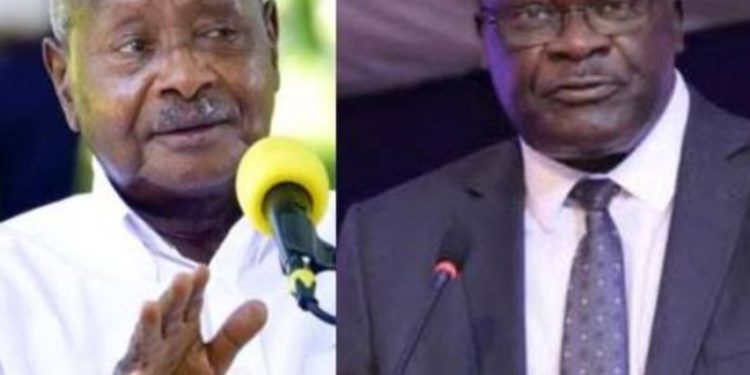Kampala – February 1, 2025
President Yoweri Museveni has sharply criticized the Supreme Court’s decision barring the Military Court Martial from trying civilians found in possession of illegal firearms, calling it a “wrong decision” that weakens Uganda’s security framework.
In a strongly worded statement issued upon his return from wealth creation tours in Busoga and Lango, the President expressed deep disappointment over the ruling, which he believes undermines a critical tool in the fight against armed criminality.
“This is a method which we, the freedom fighters, support because it reinforces the Civilian Judicial System to defend the lives of our People against Criminals armed with guns,” Museveni stated, questioning why civilians who acquire firearms illegally should be shielded from military prosecution.
The Supreme Court, in a majority ruling, determined that civilians, regardless of the nature of their offenses, should only be tried in civilian courts, a move Museveni sees as a grave misstep. However, he found solace in the dissenting opinions of Justices Chibita and Mugyenyi, who supported the continued trial of gun-wielding civilians by military tribunals.
Museveni also acknowledged Chief Justice Alfonse Owiny-Dollo’s suggestion that military trials could still be an option with certain legal adjustments. “Even the others who ruled against us had some interesting comments that will be followed up,” he noted, hinting at possible legal reforms to counteract the court’s decision.
The President warned against limiting the powers of the military courts, arguing that they had played a crucial role in pacifying volatile regions such as Karamoja, where civilian courts had previously failed due to fear of retaliation.
“Civilian magistrates were even fearing to go to Karamoja. The Military Courts have pacified Karamoja and also saved thousands of Karachunas (warrior youths) that are now guests of the State in the Prisons, who could probably be dead by now in their confrontations with the Army,” Museveni explained.
In a direct challenge to the judiciary’s authority, the President reminded the country that ultimate power rests not with the courts but with the Ugandan people through referenda and constitutional amendments. He directed the Attorney General to initiate legal changes to ensure that future court rulings do not, in his words, “interfere with this useful self-protection instrument for the Country.”
Comparing Uganda’s legal sovereignty to that of Western nations that have legalized same-sex marriage, Museveni questioned why Uganda should not have the power to designate military courts for gun-related crimes by civilians.
With this fiery response, the stage is set for a potential legal and political showdown between the executive and the judiciary, as the government seeks ways to override a ruling it sees as a threat to national security.















